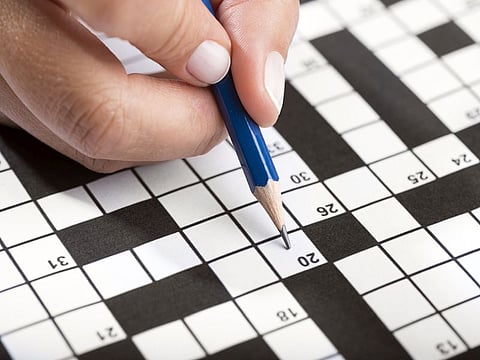TUESDAY, May 21, 2019 (HealthDay News) -- Older adults who regularly perform word and number puzzles have higher cognitive functioning than those who do not engage in such activities, according to two studies recently published in the International Journal of Geriatric Psychiatry.
In the first study, Helen Brooker, Ph.D., from the University of Exeter in the United Kingdom, and colleagues used cognitive data from 19,078 cognitively healthy individuals (aged 50 to 93 years) enrolled in the online PROTECT study. Participants self-reported frequency of performing word puzzles. The researchers found that the frequency of word puzzle use directly and significantly related to 14 measures of cognitive function.
In the second study, Brooker and colleagues conducted two cognitive test batteries (assessing reasoning, focused and sustained attention, information processing, executive function, working memory, and episodic memory) on the same cohort of individuals. However, This time, self-reported frequency of performing number puzzles was evaluated. Similar to word puzzles, the researchers found that the frequency of performing number puzzles was significantly tied to 14 cognitive measures.
"These findings further contribute to the growing evidence that engaging in mentally stimulating activities could benefit the brain function of the aging population," the authors write.
Two authors are employees of the company that provided the cognitive test battery.
Abstract/Full Text 1 (subscription or payment may be required)
Abstract/Full Text 2 (subscription or payment may be required)


